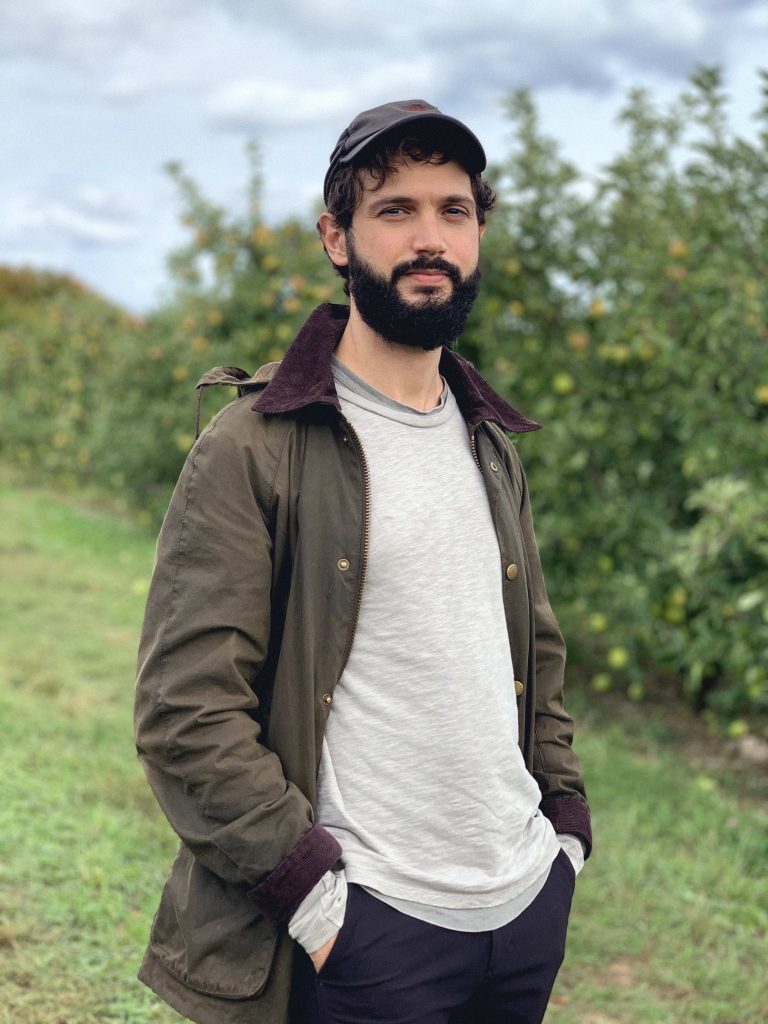LUZZU: An interview with director Alex Camilleri
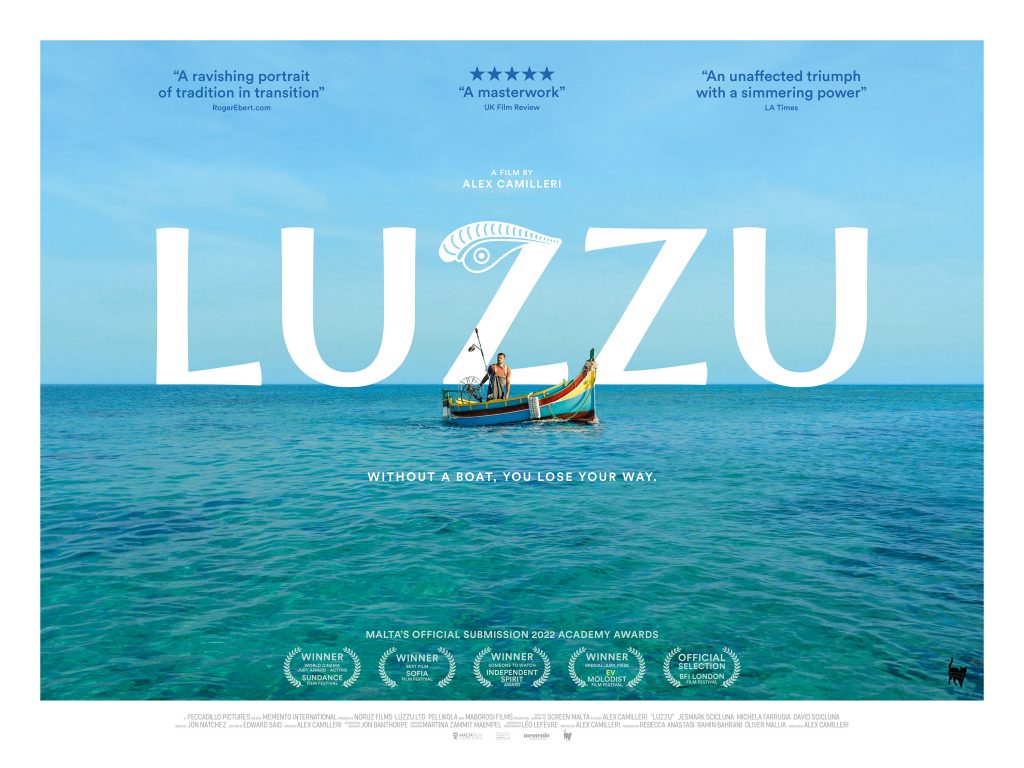
How well did you know the fishing world from Malta before shooting the film?
Prior to making LUZZU, I knew very little about fishing in Malta. Not only that: I had never even gone fishing in my life! However, the beautiful and eclipsing world of Malta’s traditional fishermen has long captured my imagination. When I began my research for the film, I quickly saw that questions of family, fate, and sacrifice — things I wondered about in my own life —weighed on many fishermen.
I started going to sea with Jesmark and David, the real fisherman who became my leads, and filmed short documentaries as they worked. This was a way for me to learn their fishing methods: how every piece of equipment on their boats worked, how the nets should be laid in the sea, and the all various species of fish and their respective market value. These days also allowed Jesmark and David to get accustomed to the camera. I took great inspiration from these fishing expeditions and wrote the scenarios I encountered directly into the script. My only regret is that my standards for seafood were set unfairly high, eating only fresh catches from my leading men!
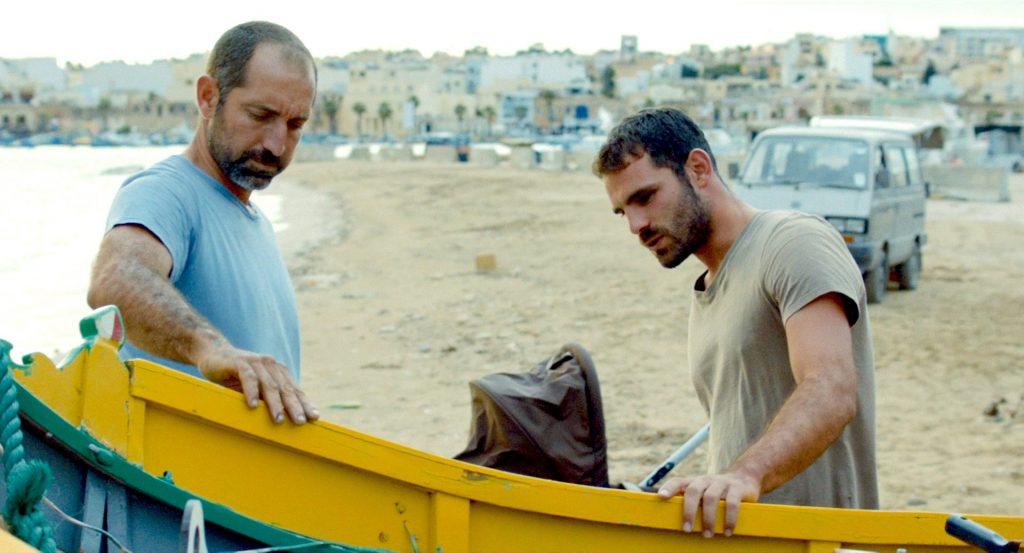
Your film offers a vivid example of the struggles one feels between tradition and modernity. Where do you stand?
I sympathize with Jesmark as he grapples with shedding this incredibly rich heritage that raised him. Our families provide a foundation of meaning in our lives. At the same time, they can limit our freedom, and the growth that may be necessary.
Jesmark’s boat is his connection to the past — generations of fathers and sons who’ve passed down this vessel with love and pride. But the LUZZU takes on new meaning for Jesmark as he comes of age in a rapidly modernizing country with no place for traditional fishermen. I think this kind of dilemma is often felt in immigrant families, my own included. My parents spoke Maltese to each other in our home, but felt teaching their children the language would hinder our assimilation in America. I don’t begrudge them, though it still strikes a certain sadness in me. It seems every family has a LUZZU.
You worked with both actors and non-professional actors on LUZZU. How did you proceed?
From the outset, I knew that I had to cast non-actors in the fishermen roles. Doing so brought me the most singular joys of the entire project. Working with my casting director, Edward Said, we hit the streets. Fishermen do not have headshots, after all, and making inroads into various fishing communities was not always a straight path. After months of searching, Ed and I were dismayed not to have any bites on the line. A day before I was due to fly back to New York City, we were struck with an unusual bit of luck:
In Għar Lapsi, a tiny fishing hamlet in the south, we found Jesmark and David Scicluna — real life cousins and fishing partners. With little time for formalities, I asked if we could all go out on David’s boat together. At sea, I brought out my small camcorder and asked the fishermen to improvise a short scene: as soon as they began riffing off each other, it seemed the whole film clicked into place!
Both men had innate on-screen talent, not to mention authentic insight into these roles that they were born to play. Jesmark and David performed this short scene better than I had originally conceived it, proving how casting non-actors would elevate the entire project, imbuing an emotional honesty I could not otherwise achieve.
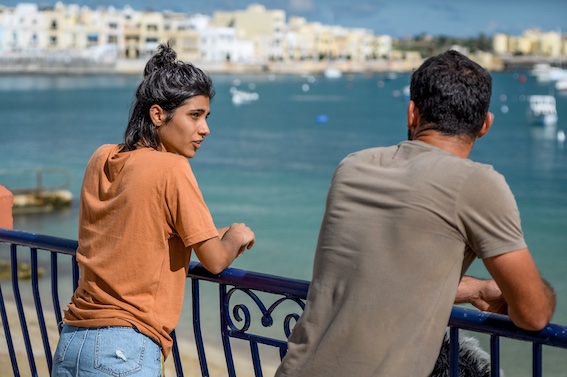
After this encounter, I was inspired to re-write large parts of my script to fit what I came to learn about Jesmark and David. When I returned to them a few months later, the fishermen had no idea what I had planned. It was a big risk! If they said “no,” I’d be back at square one. Jesmark and David had never acted, nor had much of an idea about what the process would require. But they seemed to like me well enough to let me stick around. From there, we rehearsed over many months — as with their audition, I would describe a scenario and let the guys improvise the dialogues without showing them a script. I recorded those improvs on my camcorder and then re-wrote the scripted scenes based on what we discovered through the filmed improvs.
While this was on-going, I was also on the lookout for a trained actress to play Denise, Jesmark’s on-screen wife. We scoured the island for upcoming talent, and I was blown away when I met Michela Farrugia, who was just twenty-one at the time. She’d dropped out of school at eighteen and committed herself wholly to the theater. I saw that Michela combined fierce intelligence with powerful emotional instincts; screen-testing Michela with Jesmark and David also proved her ability to seamlessly adjust to our improvised style. Michela explodes on-camera in LUZZU, her very first film appearance — and one I feel announces her as an actress with great potential on the international scene.
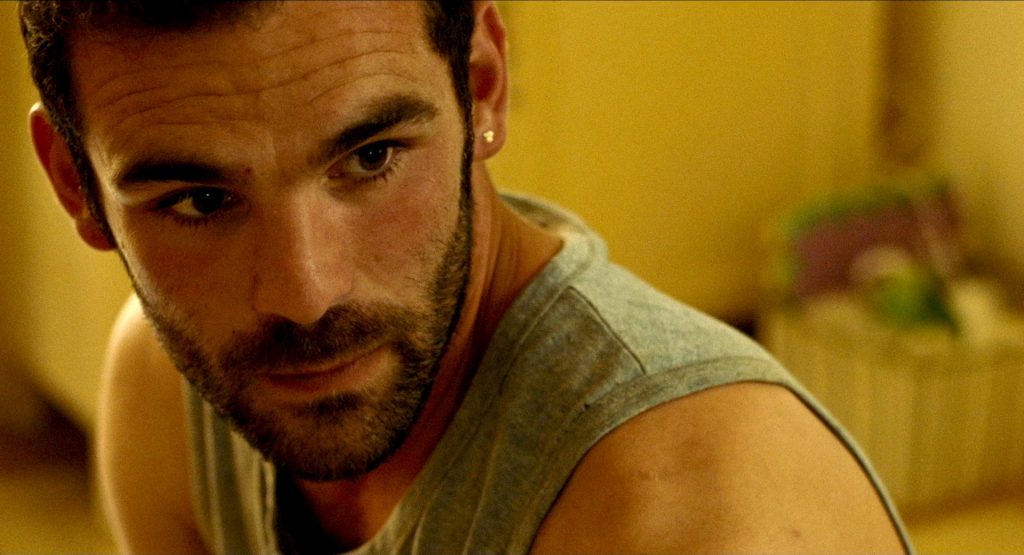
At times LUZZU feels almost documental, with a lot of realism. Are you attached to this aspect of cinema?
I am most moved by films that harness reality. For me, this is the greatest strength of moving images: showing the audience something compellingly real and unexpected.
In LUZZU, I strived to take the audience into multiple successive worlds they’d never encountered before. Years of research were necessary; I came to learn not just about traditional fishing in Malta, but also how the wider seafood industry operates, including its parallel shadow economies filled with smuggling, sabotage, and even “fish fraud,” as depicted in the film.
I was also eager to find ways for LUZZU to belong to our current moment, challenging the nostalgic view of fishing in the Mediterranean. Early in my research, I came to learn about the network of contracted labor from South and Southeast Asia — sea workers (like the character Uday) who travel the world to make their living in various marine-based industries. In Malta, these men are denied official residence status, and a kind of “handshake” loophole sees the men living just off-shore, on their boats.
For the aging Maltese fishermen, many of whom do not have sons willing to take on the trade, these Asian men fill a necessary role — some even become like members of the fisherman’s family.
But the film is also very fictional and has beautiful emotional scenes, especially characters’ dilemmas and struggles. Who and what films are your inspirations?
The films of Italian neorealism were formative to my conception of what cinema can do. The works of De Sica, Visconti, and Rossellini are foundational inspirations for me. I’m particularly moved by these films, which offer not just an artistic expression but an ethical approach that elevates them beyond ordinary works of cinema. Giving testament to the lives of ordinary people, the use of non-actors and shooting in real locations — these films were timely, vital, and could offer both personal reflection and participate in a kind of national reckoning. Building to great emotional heights, but sparing us of moral judgments, what will happen to the heroes of neorealism seems always to be in the audience’s hands.
In LUZZU, I hope we’ve captured some of the electricity felt in these works of the neorealist canon, while also offering a modern energy in the filmmaking. One might see our film as continuing the line of thought that Visconti began in LA TERRA TREMA. Shot seventy years ago in a fishing village in Sicily, just a stone’s throw from Malta, Visconti’s film also stars non-actor fishermen. The grandeur of the traditional fishing world proves just as inspiring all these decades later, and it’s uncanny to see how Visconti’s film anticipates the headwinds that will come to batter the Mediterranean’s fishing families. And I can’t help but notice a passing resemblance between Visconti’s lead fisherman and our own Jesmark.
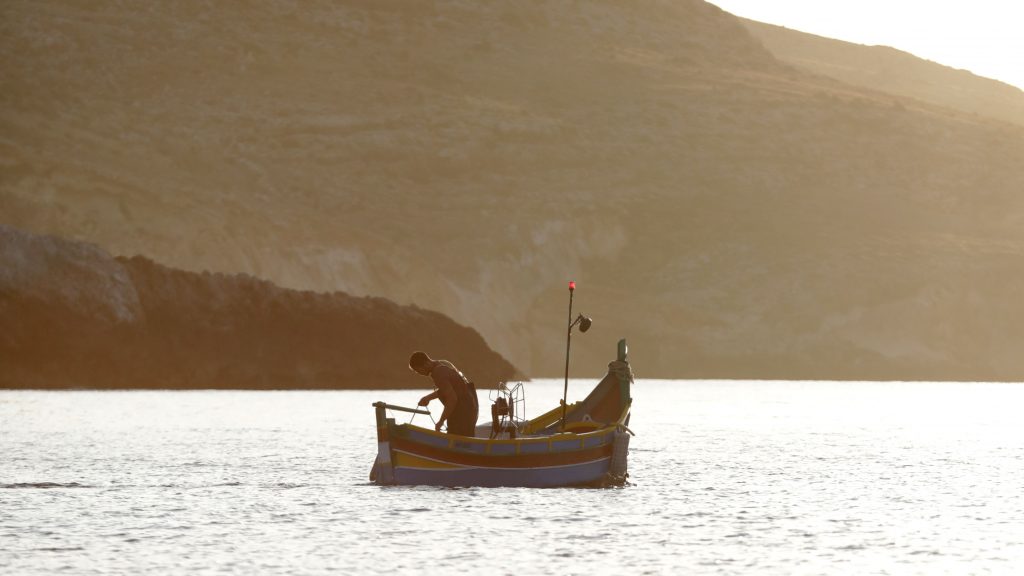
It’s your first feature film, but you already have a lot of experience with short films and editing. How is it to direct your first film?
During production, I was haunted by parts of the script I’d never seemed to crack and rewrote key sections in the midst of shooting. Looking back, I now recognize that the problem facing the character Jesmark was the one I was struggling with in my own life. I wrote the script hoping to resolve something in my own experience, but was not ready to change; as a consequence, I was afraid to let Jesmark transform as he needed to. Though I could not comprehend its full meaning at the time, I wrote Jesmark the conclusion he required… stories have a way of eliciting the truth.
Rewriting while in production was not ideal, especially under the conditions of a scrappy microbudget film shoot. But I was aided by the unflagging support of my mentor and producer, Ramin Bahrani — who was himself in the midst of his India-set production THE WHITE TIGER — and by my dedicated team in Malta. We’d gathered some of the very finest craftspeople in the island’s film industry, so fiercely committed to work on this rare homegrown project that they even turned down jobs on the Terrence Malick film that was shooting concurrently in Malta!
Our breakneck twenty-five day shoot was underwritten by years of dogged preparation by my fantastic producing partners in Malta, Rebecca Anastasi and Oliver Mallia. Without an established independent film sector in Malta, we had to introduce new creative practices and logistical structures to support this kind of project. Approaching LUZZU with the mindset of a Hollywood production or even a European co-production would have doomed our efforts; drawing from my experience in NYC’s indie scene, and with insight from Bahrani’s own early lowbudget films, we honed the production around the absolute essentials. No matter what, we committed to making this film.
And while I don’t believe in leaving things to chance, I still felt an uncanny bolt of luck in each scene we filmed with our hero prop, Jesmark’s beautiful wooden LUZZU. It became a kind of talisman for our whole team. Driving my cinematographer Léo Lefèvre to set each morning, we were always happy when we had a LUZZU scene on the schedule: it was sure to be a good day.
In your presentation to Sundance you said that the film is about the pain of growing up. How so?
For Jesmark, becoming a father requires extraordinary sacrifice, far beyond what he could have imagined at the story’s outset. In the end, he’s able to find new purpose for himself and a way to give his son a real shot at survival. But doing so requires jettisoning parts of himself and forming an uneasy relationship with an industry he’d previously denounced. Jesmark is liberated in one sense, but transformation is always bittersweet because something is inevitably forfeited.
I began writing LUZZU around turning thirty years old; all of sudden, things that always seemed distant prospects — fatherhood, family life — seemed to be knocking at the door. I’m now thirtythree, though I still find this passing into adulthood mysterious. How do we become ourselves, and when do we know we’ve arrived?
